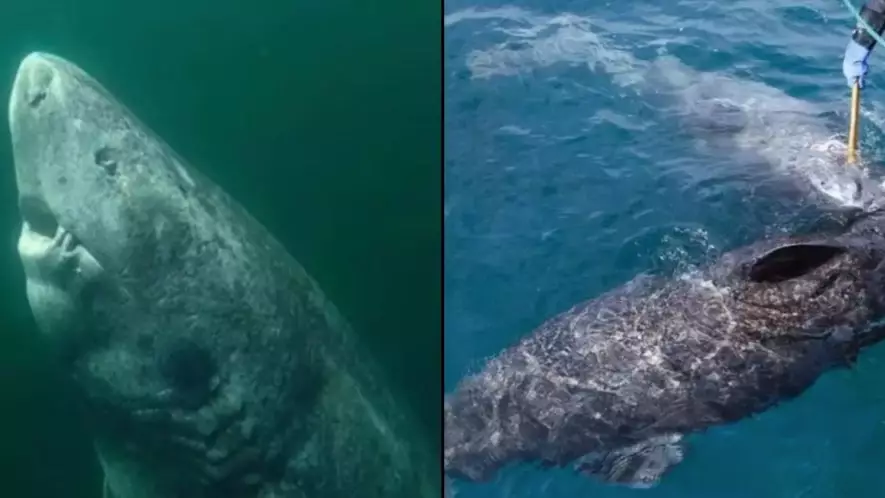
There is a shark that is said to be almost 400 years old and the oldest alive today. To put that into context, the United States of America wasn't a country at the time of its birth and James I was still the King of England.
The incredible discovery was made during a study into a group of Greenland sharks in the North Atlantic back in 2016.
Using radiocarbon dating, they were able to estimate that one of the females in a group of 28 sharks, which measured around five metres in length, was about 392 years old - though they pointed out at the time that the range stretched from 272 to 512 years old.
Advert
According to the study, the animals, which grow at a rate of around one centimetre per year, also reach sexual maturity at about 150 years old.
Speaking about the discovery at the time, marine biologist and lead author of the paper Julius Nielsen said: "We had our expectations that we were dealing with an unusual animal, but I think everyone doing this research was very surprised to learn the sharks were as old as they were."

With many fish, scientists often examine ear bones, which form a series of concentric rings, much like the rings of a tree.
Advert
However, Greenland sharks are more difficult to age, as there are no parts of their body that show growth layers.
Instead, they had to analyze the proteins in the lens of their eyes, which form in the womb. They did this with radiocarbon dating, a method that relies on determining the level of carbon-14, which undergoes radioactive decay as time goes on.
This was then combined with the fact that atomic bomb tests in the 1950s led to a spike in the levels of carbon-14, which entered marine food in the years following, and allowed them to estimate ages.
For example, the two smallest sharks in the group had the highest levels of carbon-14, which suggested that they were probably born in or around the 1960s.
Advert
Speaking at the time, Steven Campana, a shark expert from the University of Iceland, told The Guardian that it was pretty astonishing that a shark was able to survive so long.
He told the publication: "Fish biologists have tried to determine the age and longevity of Greenland sharks for decades, but without success.
"Given that this shark is the apex predator (king of the food chain) in Arctic waters, it is almost unbelievable that we didn't know whether the shark lives for 20 years, or for 1000 years."
Featured image credit: Julius Nielsen/@juniel85
Featured Image Credit: Julius NielsenTopics: Sharks, Science, Interesting, Technology, Weird